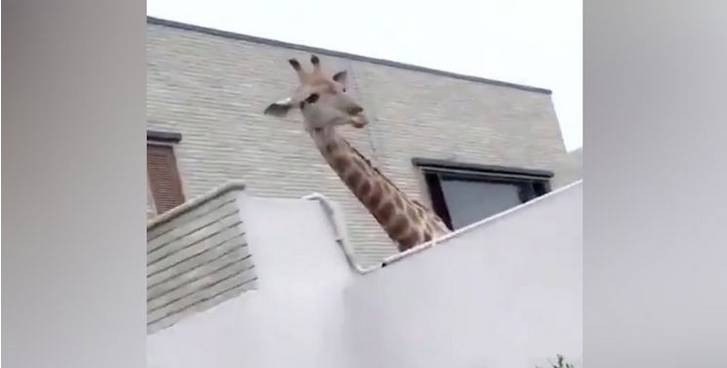Giraffe in a house turns heads in Karachi

Stay tuned with 24 News HD Android App

A video of a giraffe sticking its neck up above a wall in Karachi’s swanky Defence Housing Authority (DHA) is generating a buzz on social media. Usually a major attraction at zoos, the giraffe was spotted in the garden of a house much to the surprise of onlookers, reported Gulf News on Friday.
The strange video has since attracted the attention of wildlife authorities.
Just Karachi DHA things.
— Norbert Almeida (@norbalm) August 25, 2020
Giraffe 🦒 pic.twitter.com/p4976oJtRZ
Javed Mahar, chief conservator of the Sindh Wildlife Department, said that the owners do not have a valid licence to keep the giraffe as a pet. The Sindh wildlife team visited the premises with the request to shift the giraffe out of the residential area. “Mini-zoo permit doesn’t entitle to keep an elephant or giraffe,” he said. A notice has been served to the owner of the animal.
There are in fact two giraffes and they were reported last year but no action was taken.
Citizens of Karachi have demanded that the giraffes should be returned to their natural habitat instead of confining them to a small garden.
Animal rights activists have demanded laws that quash the importing of exotic animals and discourage the practice of keeping wild animals at home or private places. Large wild and exotic cats such as lions, tigers, and leopards can still be very dangerous despite being friendly, posing serious risks to family, friends and neighbours, they say.
Native to Africa, giraffes are the world’s tallest living land animals and are now threatened with extinction. Giraffes are listed as a vulnerable species according to the International Union for Conservation of Nature and Natural Resources (IUCN) after a dramatic drop in numbers.
Keeping wild animals as pets is becoming popular in Pakistan where lions have been seen in the back of cars. Lions, tigers, bears, deer, wolves, and now giraffes can be found in various neighbourhoods in urban areas of the country. Animal welfare activists demand strengthened laws to prohibit possession of potentially dangerous and wild exotic animals as it is not only a threat to humans but also inappropriate and cruel to force a wild animal to live a captive life as a pet.
